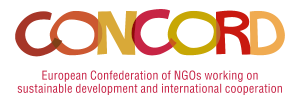CONCORD is closely following the revision of the Cotonou Partnership Agreement, the broadest EU partnership with developing countries. The Agreement will expire in 2020 and the official negotiations will start in August 2018. What will happen next? What is CONCORD’s position? Find all the latest useful information in this blogpost.

Previous positions:
At the end of 2016, CONCORD organised a seminar with Civil Society Organisations from the EU and ACP (Africa – Caribbean – Pacific) countries to gather their views on the future of the Partnership. The main outcome of that seminar was the Joint Statement (available in French too).
What happened in Malta?
In June 2017, CONCORD prepared several briefing papers aiming to provide EU NGDOs’ views on the future of the institutional set-up, the development cooperation and global challenges, the private sector and trade, and the role of civil society. These papers were presented at the Joint Parliamentary Assembly (JPA) in Malta from the 19th to 21st of June 2017. This event gathered members of the Parliaments from Africa, the Caribbean and the Pacific (ACP) and members of the European Parliament. MEPs discussed sport, development aid, famine and security issues in Sahel regions.
CONCORD organised a side event that addressed migration issues and lessons learned from the 11th European Development Fund which took place on the 19th June. Migration and aid were at the centre of the discussions during the JPA, these topics being key elements of the new Consensus on Development. Indeed, everyone wants to tackle the roots causes of migration and address this issues in the future of EU-ACP relations. But is it done the right way?
The EU is taking drastic measure to protect its borders, keeping out migrants and sending them back. Migrants are forced to take more dangerous routes, relying on human traffickers.
Migration, the main concern for Cotonou negotiations
CONCORD believes that focusing heavily on migration as a ‘problem’ and investing money in migration control is no answer to the issues of forced migration and displacements. Our confederation advocates for more legal ways for migrants but more generally wants to put human development at the centre of the discussions on the future of EU relations with Africa, the Caribbean and the Pacific. Human development is being left behind for the sake of the protection of EU borders and EU economic growth. Some policy makers from EU-ACP want short-term solutions: industrialisation without considerations for environmental impacts, economic growth without considerations for social and environmental impacts. But improving human development means tackling the roots causes of inequality, empowering the ‘left behind’: the poor and vulnerable groups. The left behind have different faces: migrants, women, youth, indigenous groups, persons with disabilities, the elderly etc. The future of EU-ACP partnership needs to promote human rights for all, sustainable development with respect to planet boundaries and more dialogue with civil society. It is no small feat.
CONCORD hopes to convince the skeptical and that JPA’s members will advocate for a more sustainable, peaceful and inclusive development after 2020. They need to play their role!
